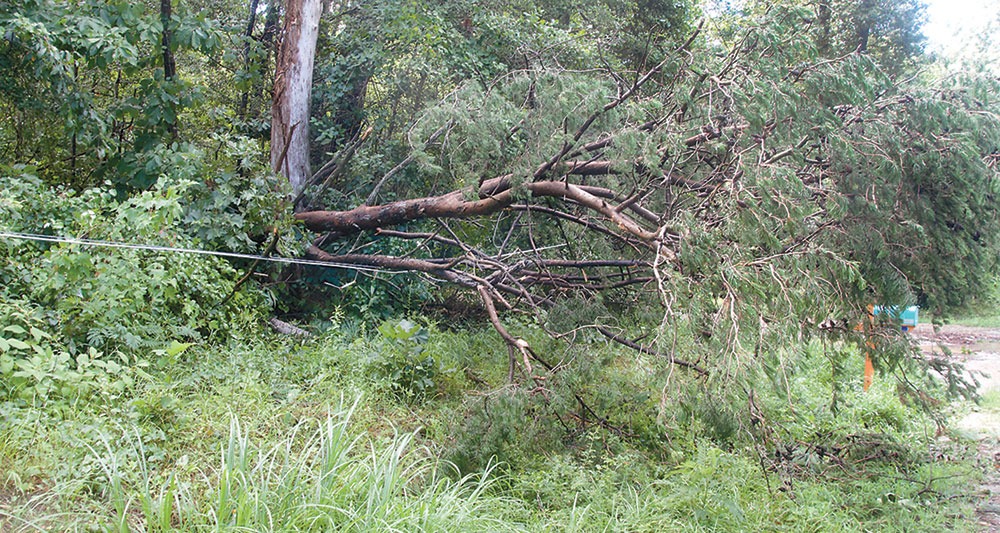
Wise to plan for what will likely be busy one
Special to The Sentinel
Was Hurricane Isaias’ visit to Middlesex County last month the main event, or just a sneak preview of the 2020 Atlantic hurricane season? As climate experts monitor the atmosphere, Virginians should prepare now for the threat of wild weather.
Above-normal season
A 60% chance of an above-normal hurricane season, which runs through Nov. 30, was predicted by National Oceanic and Atmospheric Administration’s Climate Prediction Center, a division of the National Weather Service.
Preparation needed
A proactive approach can protect your family and property against the threat of severe weather.
“It’s really important that commercial buildings, farms and homes are able to withstand storms,” said Scott DeNoon, farm product and underwriting manager for Virginia Farm Bureau Mutual Insurance Co. “Always take all the steps you can before a storm is coming to prepare your structures and your property. The earlier you can prepare, the better. Seek out tips and advice from great sources like VFB’s Hurricane Preparedness Central.”
Hurricanes often generate rainfall that can cause severe flooding over wide areas, spawn tornados, and severely affect inland areas. On Aug. 4, Hurricane Isaias’ conditions produced tornadoes that caused extensive structural damage in populated areas of Lancaster, Northumberland, Southampton and Suffolk counties.
Plan evacuation
Virginia Farm Bureau’s hurricane guide suggests planning a safe evacuation route before a storm is imminent. Familiarize yourself with the plan, and review it with family, friends and coworkers.
Take an inventory of your personal property, review insurance policies to ensure proper coverage is in place, and stormproof your home if possible.
Essential items for evacuation, or returning to your property after a severe storm, include:
- Flashlights and extra batteries.
- A portable, battery-operated radio and extra batteries.
- A first-aid kit.
- Emergency food and water (for humans and pets).
- A non-electric can opener;
- Any personal medicines and supplies.
Monitor news
During the storm, monitor the news, stay inside and keep pets safe with leashes or crates, the guide recommends. Tell someone your location, and review your plan with loved ones. Charge your phone beforehand, and use flashlights, not candles, in case of power outages.
After the storm, listen to local news or check local websites including www.SSentinel.com for emergency instructions, and make contact with others.
Avoid walking or driving in floodwater, avoid drinking tap water and check for food spoilage. Take photos for insurance claims. Be aware of natural gas leaks, watch for sparks and broken or frayed wires, and be sure electrical systems or appliances are not wet before using. Also, check for damaged pipes, and disinfect items that may have been contaminated.



